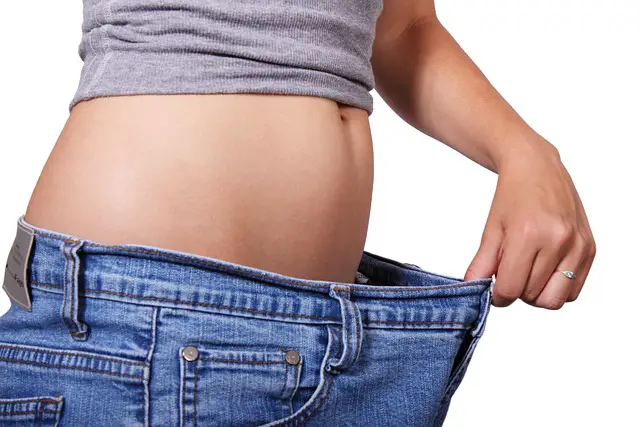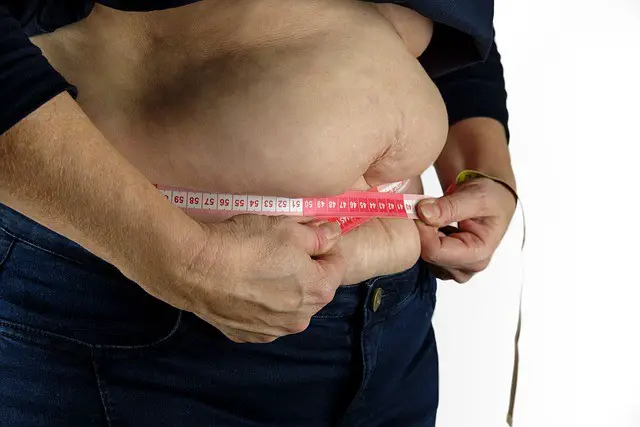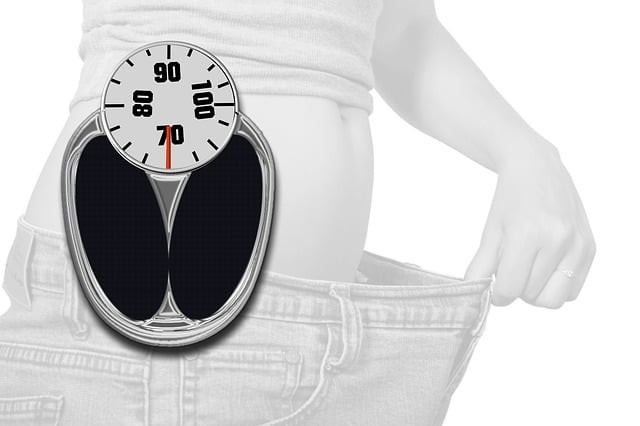Obesity has become a growing menace in today’s population thanks to our unhealthy lifestyle. Our high consumption of the Western diet characterized by the high intake of processed foods, refined foods, fried foods, sugary drinks, and packaged goods is the number one cause of the high numbers of overweight and obesity being reported.
Overweight and obese are risk factors for cardiovascular disease, type 2 diabetes, and other chronic diseases brought about by inflammation. To lower your risks of such conditions changing your lifestyle to healthier habits is paramount.
Proper dietary habits plus increased activity levels can help you manage your weight which can curb the pathophysiology of other conditions. You can try walking or running to help burn calories which trigger weight loss.
The Western diet is high in simple sugars and refined carbohydrates that can easily be broken down and absorbed in the body, triggering insulin release. Insulin is a storage hormone, that reduces the burning of body fat and increases its storage promoting weight gain. This is why most health professionals advise you to lower your intake of carbohydrates when you’re trying to lose weight.
As much as it is important to reduce your daily calorie consumption, your source of calories also matters. You may know the recommended calorie intake for weight loss, but do you know how much carbs for weight loss? This article will discuss how much carbs for weight loss men and women are required to consume, how to calculate how much carbs to eat to lose weight, how much carbs diabetics should eat, and how to achieve a low carbohydrate intake.
How Much Carbs for Weight Loss
You might be wondering why carbs are of interest to us when it comes to losing weight. Doesn’t fat make you fat? This is not the case. Consuming an excess of any of the macronutrients can bring about weight gain. However, carbohydrates are of major concern because of the physiological processes triggered or inhibited when you consume excess calories from carbohydrates.
When you consume a high number of calories from carbs, especially bad carbs, they are metabolized to release glucose which can spike your blood sugar and trigger the release of insulin. High levels of insulin in the blood inhibit the oxidation of stored fat for fuel since the body already has its primary source of fuel (glucose) available for energy.
Research has shown that carb restriction like in low-carb diets can induce rapid weight loss, even more than on a low-fat diet. Low-carb diets brought about an average weight loss of 9 kgs while low-fat diets had an average loss of 4 kgs. Other studies have also proven the prowess of low-carb diets over low-fat diets.
Before we answer how many grams of carbohydrates you are meant to eat to lose weight, we need to know how many carbs you should eat ideally.
Carbohydrates 101
The U.S. Department of Health and Human Services recommends that 45% to 65% of your total calories should be from carbs. This recommendation applies if you’re not looking to shed some pounds. This accounts for about 275 grams of carbohydrates on a 2,000-calorie diet.
What about when trying to lose weight? You may have been advised to follow the 40-30-30 rule to lose weight, that is 40% from carbohydrates and 30% from protein, and the other 30% from fats. Keep in mind that to lose weight you need to create a calorie deficit, but that doesn’t mean getting rid of carbs entirely. Let’s see how much carbs you should eat then!
How Much Carbs Should I Eat to Lose Weight Calculator
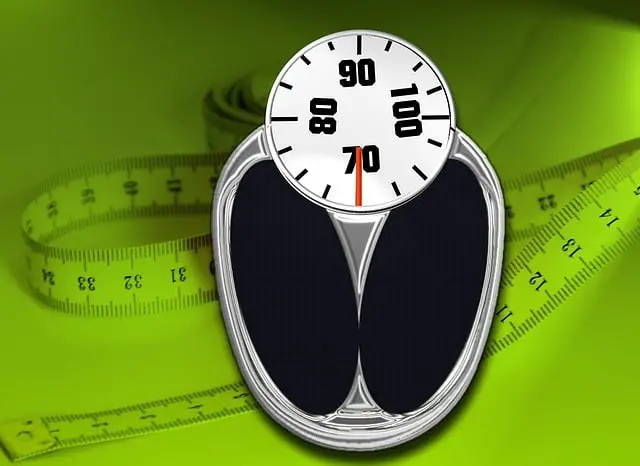
Dear reader, how much carbs you need for weight loss is not similar to what your neighbor requires. It’s not that one size fits all kind of situation! There are several factors to consider when you’re calculating daily carb intake for weight loss. They include:
- Goal: Why are you lowering your daily calorie intake from carbs? Is it for weight loss or to improve your lipid profile or to regulate your blood sugar? You may not need to lower your carb intake as much if it’s for improving cholesterol levels compared to long-term weight loss.
- Age: Your daily calorie target reduces as you age, and this applies to your daily carbohydrate target as well.
- Body composition: An individual with a high muscle mass requires more carbs for energy than one with less muscle mass.
- Activity levels: Assess your daily activity, will you? A more active individual will need more carbs compared to a sedentary individual.
- Gender: Ideally, men have a higher daily calorie target than women, meaning their daily carbohydrate target follows suit.
So, how would you calculate how many grams of carbs you need to consume for healthy weight loss?
Let’s assume we are following the popular 40-30-30 rule most healthcare providers recommend. The American guideline recommends the 2,000-calorie diet, but you need a 500-1,000 calorie deficit to drop excess weight. It is not healthy to consume less than 1,200 calories per day. For our calculations, we will work with 1,500 calories per day.
You are meant to get 40% of your calories from carbohydrates, meaning you will consume 600 calories of carbs per day. Carbs provide you with 4 calories per gram, so your daily carb limit will be 150 g.
This number may vary depending on the factors mentioned above. Lowering your carb intake is a good approach to weight loss because it promotes the burning of fat in storage. For weight loss maintenance you need to keep eating healthy even after you stop following your low-carb diet.
Since gender influences how much carbs for weight loss, let’s take a look at how many carbs male and female weight loss clients need to achieve their goals.
How Many Carbs Per Day to Lose Weight for A Man?
I mentioned earlier that men have a higher daily calorie target, which means your male weight-loss clients will need more carbs. The higher caloric demands are because they have more muscle mass.
Men aged 19-60 years need 2,200-3,000 cals per day, with caloric intake decreasing with age. Following the 40-30-30 rule and a calorie deficit of 500 cals, men need 680-1,000 cals of carbs. In terms of grams, this translates to 170 g to 250 g of carbs.
How Many Carbs Per Day to Lose Weight for A Woman?
So, our current chorus is men need more and women have a lower daily carbohydrate target. Let’s crunch the numbers, shall we?
Women aged 19-59 years need 1,800-2,400 cals per day. With a calorie deficit of 500 cals and 40% of your calories from carbs, this translates to 520-760 cals from carbs and a 130-190 g carb limit.
Pregnant and lactating mothers should not restrict carb or calorie intake due to increased energy and nutrient demands.
You may take a look at the carbohydrates per day above and feel like they are too much in comparison to any low-carbohydrate diet. The above numbers are based on your gender, but what about based on goals?
Low Carb Calculator

Low carbohydrate diets restrict carb intake to 20-100 g per day. The most common types of low-carbohydrate diets for weight loss include:
- Atkins Diet
- South Beach Diet
- Zone Diet
- Paleo Diet
- Low carbohydrate, high-fat diet (ketogenic diet)
Some of these are more restrictive than others. These diets focus mostly on the number of digestible carbohydrates you consume rather than your total carbs. To calculate low carbs, you will subtract dietary fiber from total carbs to get net carbs.
Let’s discuss when to pick a higher range of carbs, and when to go for a lower amount:
Living A Healthy Life
Your main goal here is not weight loss, but you want your body at its best. The moderate approach is the best option for you, where you limit carb intake to 100-150 g per day. This is the least restrictive. You are allowed to consume as many veggies, some fruits, healthy grains, and moderate portion sizes of starches.
Improve Lipid Profile
Excess intake of refined carbs has been shown to poor blood sugar regulation which leads to changes in plasma lipids. High insulin levels reduce lipolysis and increase the storage of fats which can lead to high low-density lipoprotein levels (bad cholesterol) and low levels of high-density lipoproteins (good cholesterol).
A low carbohydrate diet can improve cholesterol levels. Consider limiting your carb intake to 50 g to 100 g of per day. This will allow you to consume a high number of veggies, 2 to 3 fruits per day, and limit your intake of starchy foods.
Blood Sugar Control or Weight Loss
Here’s where the ketogenic diet comes in to steal the show. Studies have compared low-carbohydrate and low-fat diets and found the former more effective for weight loss.
Besides weight loss, limiting your carb intake to 20-50 g of carbohydrates can help with blood sugar regulation.
Carb Calculator Diabetes
You are safe eating 20g-50g of carbohydrates per day if you have type 2 diabetes. Pay attention to your portion size of carbs and the types of carbs you consume if your blood sugar is uncontrolled. Why do the types of carbohydrates matter? Because they affect your blood sugar differently, whether you are diabetic or not.
Types of Carbohydrates

There are two types of carbohydrates to pay attention to when trying to lose weight or regulate blood sugars. These are simple carbohydrates and complex carbohydrates. Simple carbs refer to those that are easily broken down to produce glucose and can quickly spike blood sugars. Simple carbs include fruits, dairy, processed sugars, sugary drinks, sweeteners, and baked products.
Complex carbs on the other hand take longer to be digested and absorbed into the bloodstream, meaning they will raise your blood sugar slowly compared to a simple carb. They include legumes, whole grains, and starchy veggies. Although your blood sugar spikes faster with simple carbohydrates, your body needs both types for a balanced diet.
Simple carbs are usually considered bad carbs, but that’s not entirely true. If they are from natural food sources they are not as bad as from processed foods. It also depends on your energy needs and the time you are consuming your meal. These can be helpful if you are about to take part in an activity that needs an immediate amount of energy. They can also come in handy when a diabetic is hypoglycemic to help boost glucose levels.
Good carbs to include in your diet include:
- Fruits with skin
- Whole grain
- High-fiber veggies like sweet potato
- Beans and legumes
Disclaimer: these carbs may be considered good but may not be allowed on low-carb diets that restrict intake of carbs to 20 g to 50 g like the keto diet. For these diets, your source of carbohydrates is non-starchy vegetables.
Bad carb sources you should avoid are:
- white sugar
- Refined carbs like white bread and pasta
- sugary foods like cakes, candy, and baked produce
- Processed foods
- Sugary beverages
How Many Carbs Do I Need to Eat to Lose Belly Fat?
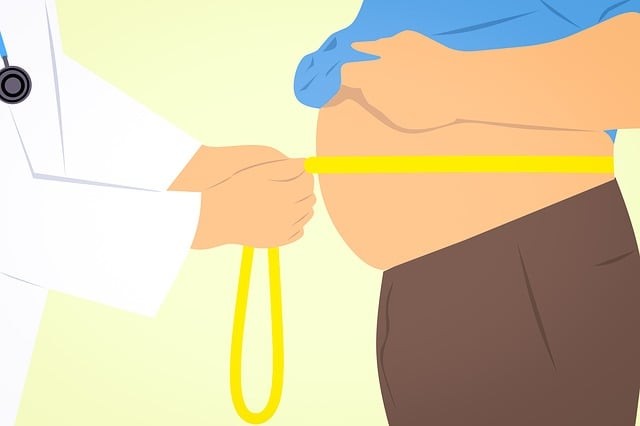
The best way to burn belly fat is on a low-carb diet that restricts carb intake to less than 50 g per day. The ketogenic diet burns abdominal and visceral fat without compromising lean muscle mass.
What is the 5 to 1 Rule for Carbs?
The types of carbs include sugars, starches, and fibers. The 5:1 rule for carbs helps you choose high-fiber foods to include in your diet.
It refers to the ratio of carbohydrates to fiber in your food. If you divide the number of grams of carbohydrates by the number of grams of fiber in your food and get a number less than 5, the food is rich in fiber and should be added to your diet. If it is more than 5, put it back on the shelf and consider a different option. Dietary fiber is important for regulating cholesterol and preventing constipation.
Bottom Line
Knowing how much carbs for weight loss is important to trigger the right metabolic pathways necessary for the breakdown of fats. The amount of carbs one consumes is unique to one and can be influenced by age, gender, goals, and activity levels. The rule of thumb is to keep off bad carbs and eat the good fats, however, this may not be the case if you’re on a keto diet.
Have you calculated how many carbs you require for weight loss? What did you base your calculation on? What is your carb intake for weight loss? Drop your answers below!

